Normal Good Citizenship Worksheets for Ages 4-6
6 filtered results
-
From - To
Discover our engaging "Normal Good Citizenship Worksheets for Ages 4-6," designed to introduce young learners to the fundamentals of being a good citizen. These fun and colorful worksheets encourage children to explore concepts like kindness, sharing, and respect within their communities. Through interactive activities, children will learn valuable social skills that foster cooperation and empathy. Compatible with various teaching styles, these worksheets are perfect for educators and parents seeking to nurture responsible behavior and positive relationships. Download our resources today to help your child develop a strong foundation in good citizenship while having fun!
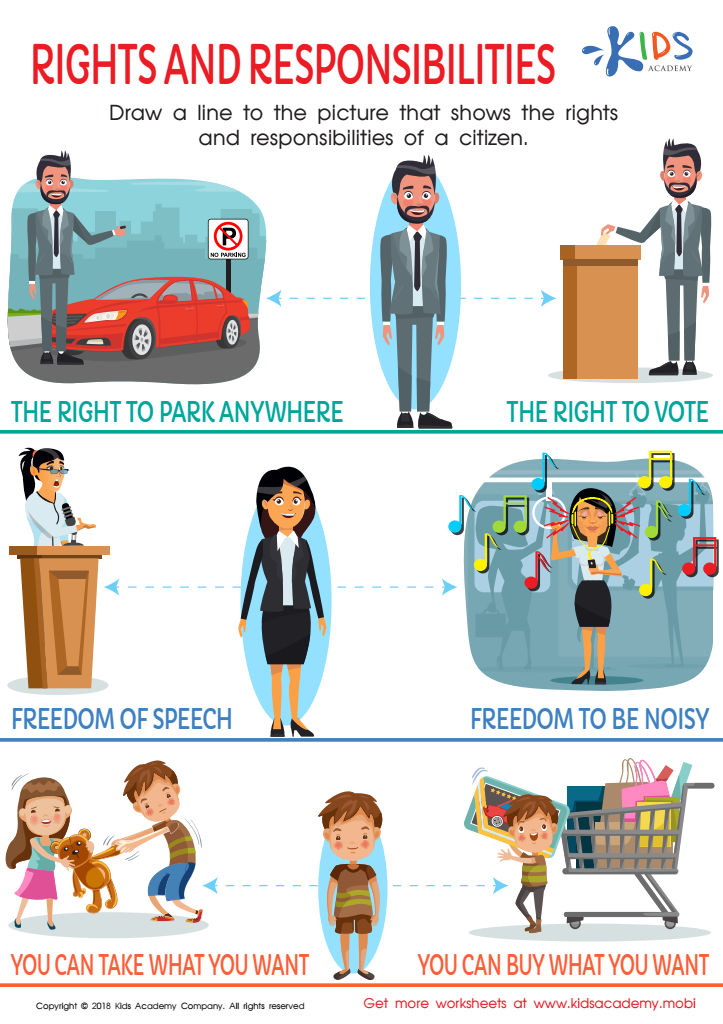

Rights and Responsibilities Worksheet
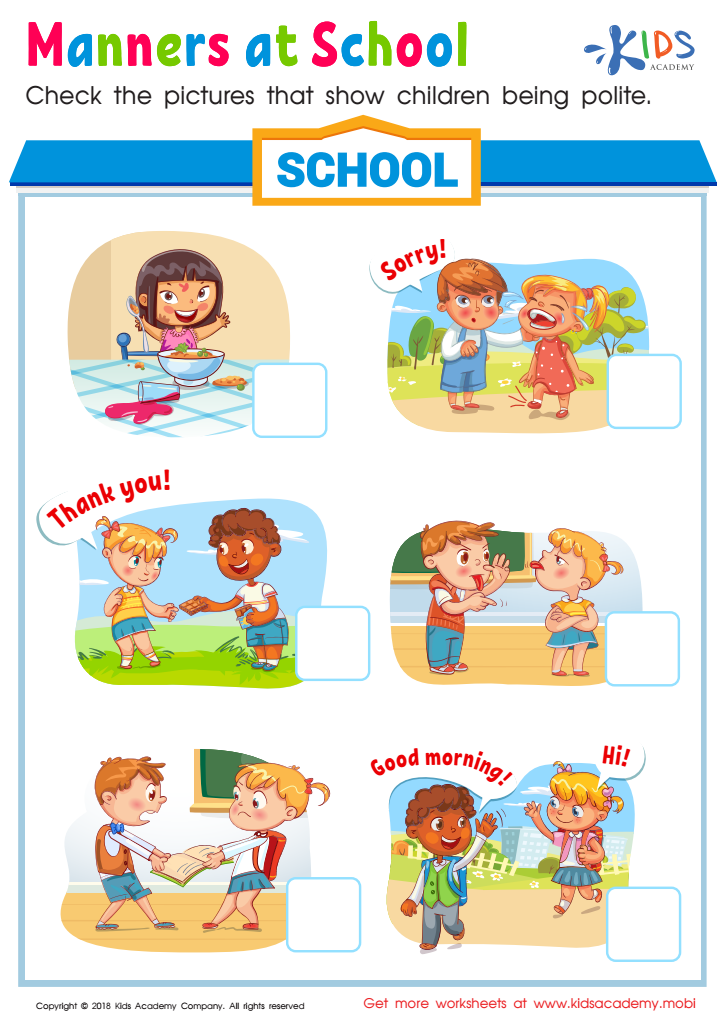

Manners at School Worksheet
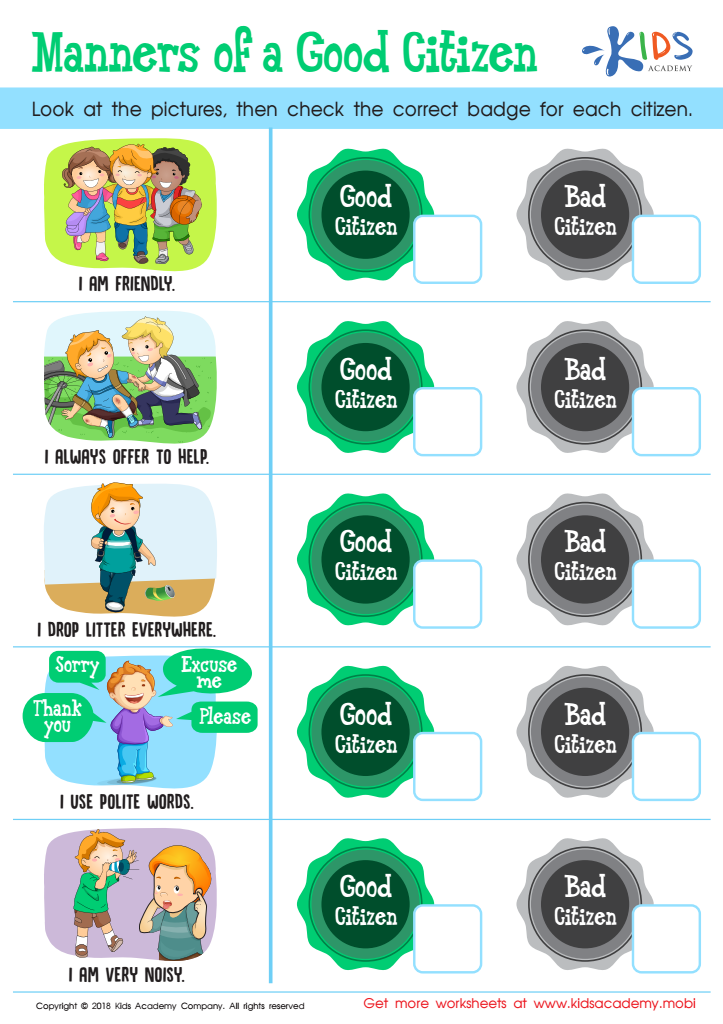

Manners of a Good Citizen Worksheet
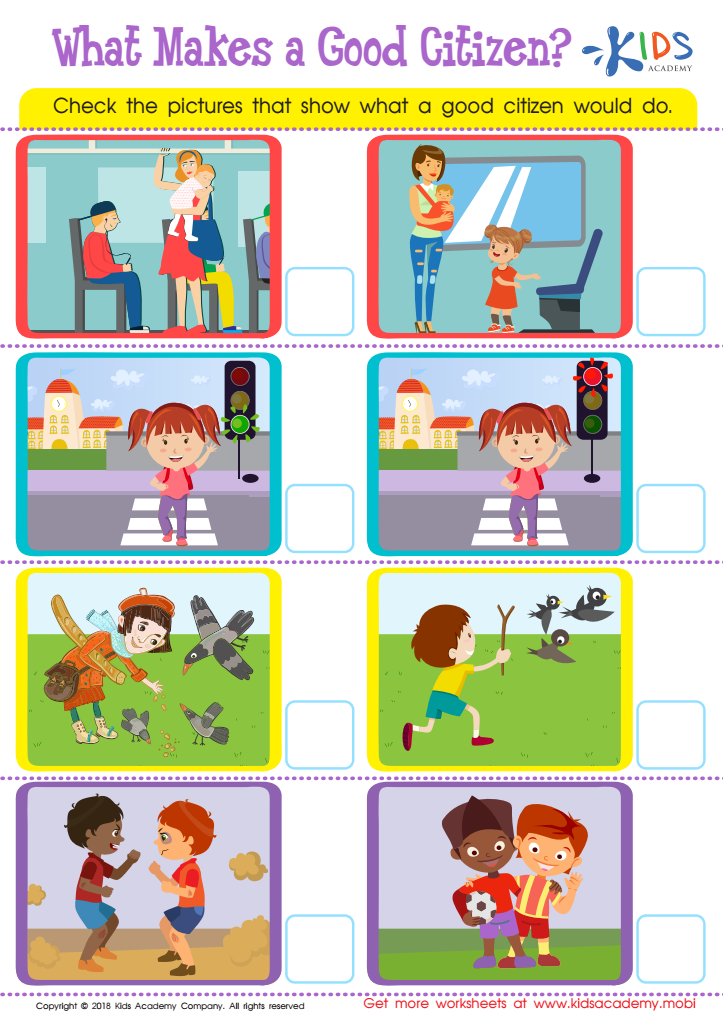

What Makes a Good Citizen? Worksheet
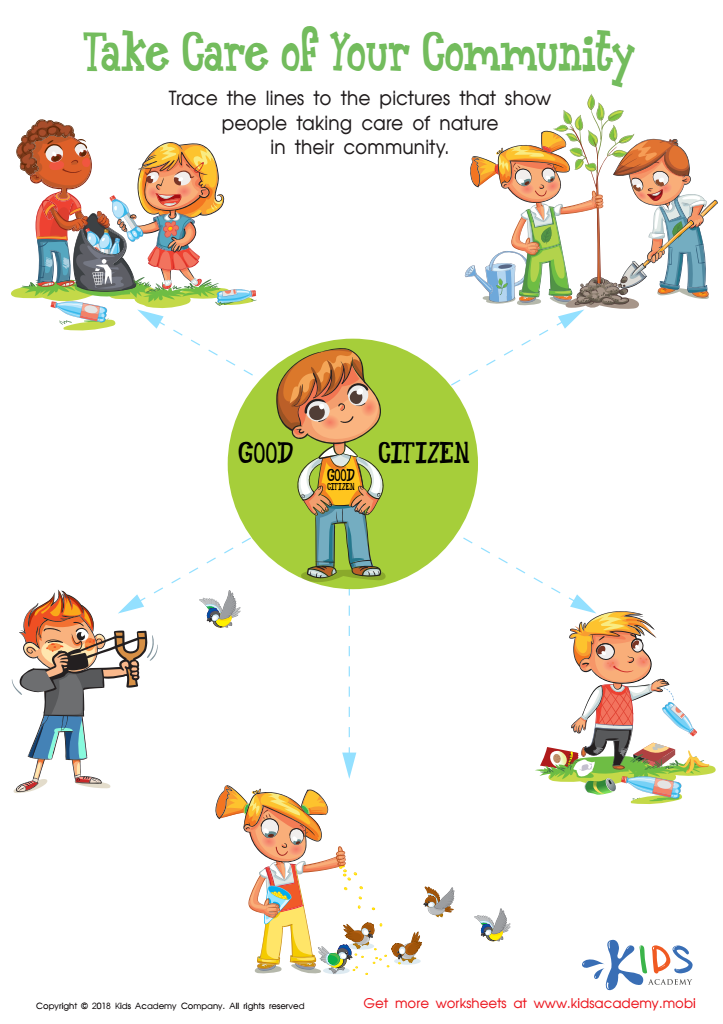

Take Care of your Community Worksheet
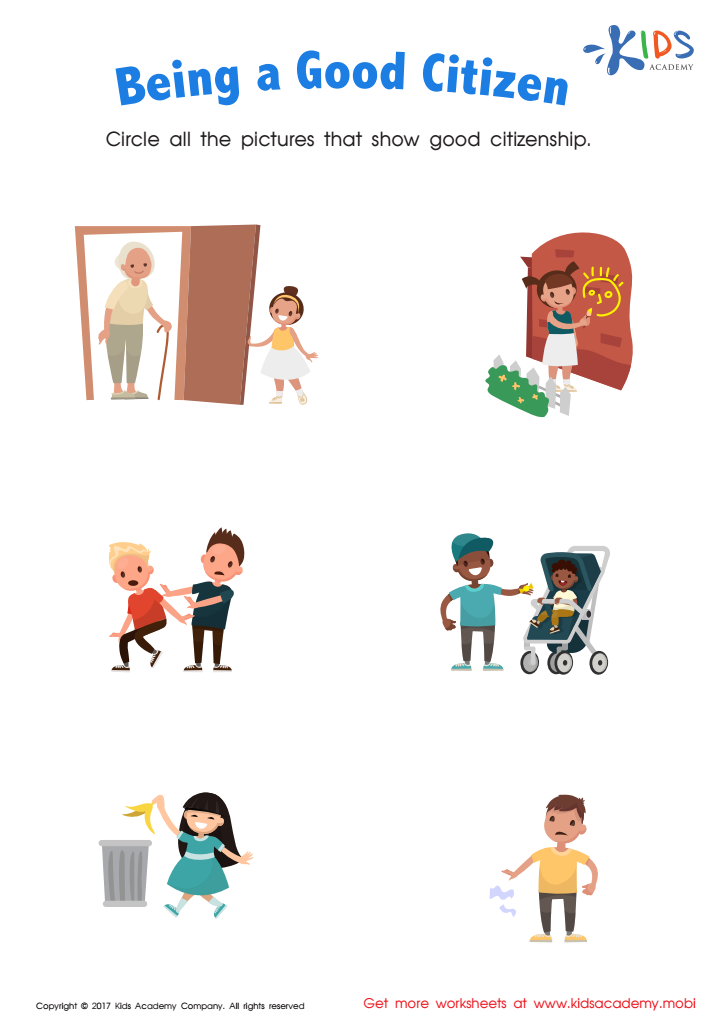

Being a Good Citizen Printable
Normal Good Citizenship for children aged 4-6 is essential for several reasons. At this developmental stage, children begin to understand social interactions and the concept of community. Teaching good citizenship instills values like respect, kindness, and cooperation, which are crucial for building healthy relationships with peers and adults.
When parents and teachers emphasize good citizenship, they help children learn to share, take turns, and express their feelings in appropriate ways. These foundational skills promote positive social behaviors and emotional intelligence that can lead to lifelong benefits, including effective communication and conflict resolution.
Additionally, instilling a sense of belonging and responsibility within a community fosters empathy. Children learn to care about others and the environment, laying the groundwork for future civic engagement. They can participate in simple acts of goodwill, like helping a friend or recycling, which contribute to a collective effort for a better world.
Lastly, as children learn about the responsibilities of good citizenship, they develop a sense of identity and belonging. This empowers them, as they recognize their capacity to make a difference, encouraging hope and motivation as they grow. Ultimately, fostering these principles supports not just individual development but builds a healthier society.

 Assign to My Students
Assign to My Students












